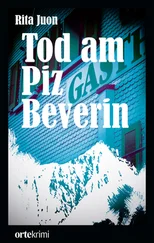Marius did not come back before the snow came, nor before the New Year, nor before the spring. The endless time of war began. The seasons changed, the years passed and all our lives, except those of the youngest children, who remembered nothing else, were in abeyance. Early in 1916 Emile and I were called up. Between young boys and old men there was nobody left. There were no full male voices to be heard. The horses became accustomed to the commands of women.
La Mélanie, the Cocadrille and Henri ran the farm. There was so much to be done that the younger brother could not afford to quarrel openly with his sister. If Henri made the Cocadrille angry, she would disappear for the rest of the day, and he realised that they could not do without her labour even for a few hours.
Despite her size, she was tireless. She was like the small humming-bird who, when the time comes to migrate, can fly a thousand miles across the Bay of Mexico. She was not the second woman of the house, she was more like a hired hand — a man. A midget man with a difficult and unpredictable character. She drove the mare, she fetched wood, she led the horse when Henri ploughed, she fed the cows, she dug the garden, she made the cider, she preserved the fruit, she mended the harnesses. She never washed clothes nor sewed. In a pailler on top of her head she could carry eighty kilos of hay. If you saw her from behind, it looked like magic: the linen tent, full of hay, completely hid her and so it appeared to be moving down the slope, alone, on its lowermost corner. Both La Mélanie and Henri were somewhat frightened of her when she sat with them in the kitchen. They never knew how she could take what was said.
At the beginning of 1918 the family at Brine received a telegram informing them that Emile had been gravely wounded near Compiègne. Each evening the Cocadrille asked the milk, frothing in the wooden bucket, to keep her brother Emile alive.
He stayed alive and after months in hospital came home. When at last Marius too returned, Mélanie saw that her son now looked older than his father. Nobody in the village spoke of victory, they only spoke of the war being ended.
A year after his demobilisation Marius announced to Emile that La Mélanie was expecting another baby.
At her age! said Emile.
Marius nodded: It will be our last.
It will have to be!
The more scandalised the son’s expression, the more the father smiled.
All the war I promised myself that.
And Mother?
I survived.
So we’ll be four, concluded Emile.
He meant that the family inheritance would be divided into four.
Yes, if you count the Cocadrille.
Have you told the Cocadrille?
Not yet.
I wonder how she will take it.
It’s for Mother to tell her.
It’ll change the Cocadrille.
How is that?
It will change her. Me and the Cocadrille, we might be married now with our own children. Yet who is going to marry the Cocadrille? And I’m too sick to marry. It ought to be our turn and, instead, you’ve made another baby.
Call it an old man’s last sin! Marius, however penitent, could not stop smiling.
In December 1919 La Mélanie’s last baby was born and was christened Edmond. I stayed in the army an extra year to learn mechanics. I came back to the village at the beginning of 1920.
The following June, four men took the steep path, up to the alpage. They were young and they climbed quickly. With them they carried an accordion, eight loaves of bread and a sack of coarse salt for the cattle. They had worked all day and it was beginning to become dusk.
At one point where the cumin grows profusely either side of the path, the one who was leading stopped and all four looked down at the village, seven hundred metres below.
You can see André’s sheep, Robert said.
They could also see the road out of the village which followed the river and led to the plain.
He’s slow, is André.
He slowed down ever since the death of Honorine.
He should marry again.
Who?
Philomène!
They laughed and looked down on the village, with the assurance of youth: an assurance which comes from the conviction that, because the young see clearly, they will avoid the mistakes of the old.
Philomène has driven stronger men than André out of the house!
Out of their minds!
When they arrived at the top, the pastures were full of small birds flying just above the grass. The flight of these birds is like a line of stitches, they beat their wings as fast as butterflies and with this they gain height; then they glide and lose height till they beat their wings again and begin another stitch. As they fly they chirp making a noise like castanets.
These birds, flying at the level of their hands, made the men think of the eyes and names of the girls they had come to visit. Very soon the birds would stop flying and night fall.
From time to time a visiting archprêtre would preach a sermon against the immorality of leaving young women alone in the alpage. Our own curé knew that there was no alternative. It was the unmarried daughter, capable of looking after the cows and making the cheese, who had the pair of hands most easily spared from the work below. Old women still talk of their summers in the alpage.
Before making their visits that night, the four young men planned to sing. There is a place surrounded on three sides by a rock which resounds like the choir of a church. There they were going to sing to announce their arrival to the young women whom they had already, in imagination, chosen. Yet for their singing to be a surprise, they had to skirt the main group of chalets and reach the horseshoe of rocks unseen. This detour involved passing only one chalet, which was unimportant, because it was the Cocadrille’s.
As the four approached, the Cocadrille came to her doorway. What emphasised her smallness was the fact that, although she wore the clothes of a woman, she had neither hips nor bust. She had the figure of the ideal servant, tiny but active, without age or sex. That summer she was twenty.
You have an accordion, she said.
Yes, we have.
I can dance, she replied.
Not in those sabots, you can’t!
She kicked them off, just as she had kicked them off when she was dancing at the back of the elephant. Her feet were black with dirt. Without waiting for the music, she began to lift up her knees and to step ferociously on the earth around the entrance to the stable where the coming and going of the cows had already worn away the grass. Just by dancing she forced Robert to play a few chords.
Stop! I shouted. The music will tell the others we’re here.
The music of the accordion died down. The Cocadrille looked straight at me, unblinking, and slipped her feet back into her clogs. What was disconcerting about her look was its fixity. It was as if her head and neck became suddenly paralysed.
We must be on our way.
Can one of you help me move a barrel? she asked. Robert stepped forward.
Not you, she said, better the one who has just come back from the army.
I shrugged my shoulders and asked my three companions to wait.
Let them go, she said.
Guffawing and making signs with their hands, they left.
Tell La Nan I’m coming to visit her! I shouted after them.
The barrel had oil for the lamp in it. After I had shifted it, the Cocadrille offered me coffee. At first I could hardly see inside the chalet. I stood there, holding the cup in my hands, and she poured gnôle into it without asking. To pour gnôle into my cup she had to raise her arm higher than her shoulder.
You’d be small enough for a chimney-sweep, I said, not knowing what else to say.
I’m a woman, she replied, and I’d shit down their chimneys.
In the very dim light which made her almost invisible, her voice sounded like a woman’s.
Читать дальше












